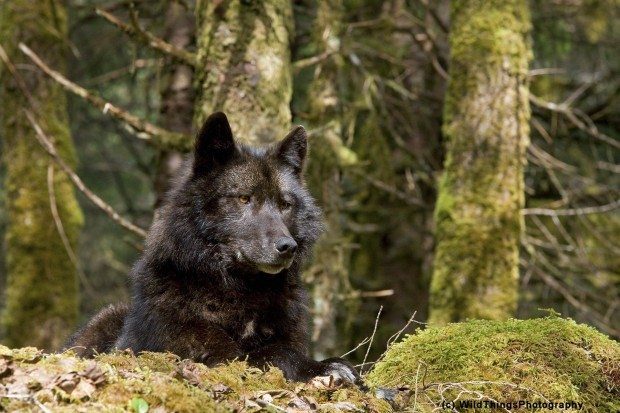The land and waters of Alaska’s southeastern coast are home to an amazing variety of wildlife: whales, wolves, grizzly bears, salmon and more. Much of this is housed in the Tongass National Forest, at 17 million acres the largest national forest in the U.S.
This fairytale-like forest emerges from the shadows of the highest coastal mountain range in the world. The mountains trap moisture rolling in from the Pacific and storms drench the region with as much as 200 inches of rain a year. The ancient trees of this forest live anywhere from 200 to 700 years. One species can even survive for 1,000 years or more.
Once upon a time, this rare rainforest stretched unbroken from the California redwoods to the Gulf of Alaska. The Alaskan rainforest remains the largest and most pristine remnant of that ancient forest.
But roughly 1 million acres of this old-growth forest have been lost to clearcut logging and road construction over the past 50 years.
Save the Alexander Archipelago Wolf
With threats to Alaska’s natural forests come threats the wildlife that inhabit them—especially the Alexander Archipelago wolf.
This rare species, found only in Alaska’s coastal temperate rainforests, has seen its numbers dwindle in recent years. Clearcut logging as well as hunting and trapping are threatening the wolf’s habitat, its prey, and its life.
In 2015, a report by the Alaska Department of Fish and Game confirmed that the population of this wolf subspecies that inhabit the Prince of Wales Island area—where hunting and trapping is legal—had fallen by 60 percent in just one year. There could be as few as 50 wolves left on the island.
Greenpeace and the Center for Biological Diversity have been pushing to protect the wolf under the Endangered Species Act since 2011.


